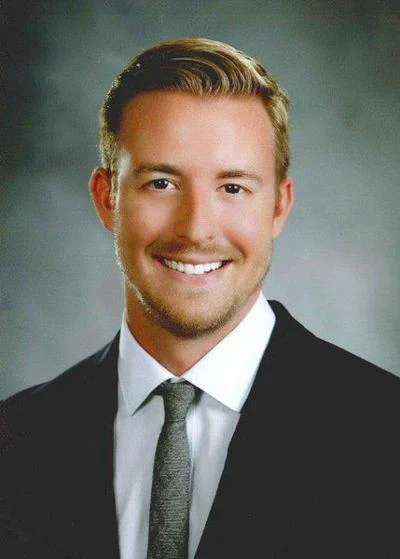I first posted this list when I turned 60, and have made it an annual tradition to get it out every year and re-examine it, edit it, and remind myself why I thought such things in the first place (it is also a way to give myself the day off for my birthday). I will keep my original observation-- that this list does not represent any particular signs of wisdom on my part, because I discovered these rules much in the same way that a dim cow discovers an electric fence. Also, I'll note that it gets longer every year; if you think you see a book, feel free to contact me with a publishing offer. In the meantime, I exercise a blogger's privilege to be self-indulgent.
1. Don't be a dick.
There is no excuse for being mean on purpose. Life will provide ample occasions on which you will hurt other people, either through ignorance or just because sometimes life puts us on collision courses with others and people get hurt. Sometimes conflict and struggle appear, and there is no way out but through. There is enough hurt and trouble and disappointment and rejection naturally occurring in the world; there is no reason to deliberately go out of your way to add more. This is doubly true in a time like the present, when everyone is already feeling the stress. Be kind.
 |
You are not necessarily going to be great. But you can always be better. You can always do a better job today than you did yesterday. Make better choices. Do better. You can always do better.
3. Tell the truth.
Words matter. Do not use them as tools with which to attack the world or attempt to pry prizes out of your fellow humans (see Rule #1). Say what you understand to be true. Life is too short to put your name to a lie. This does not mean that every word out of your mouth is some sort of Pronouncement from God. Nor does it mean you must be unkind. But you simply can't speak words that you know to be untrue. I'll extend this to social media as well: if it's not the truth, don't post it.
4. Seek to understand.
The necessary companion to #3. Do not seek comfort or confirmation. Do not simply look for ways to prove what you already believe. Seek to understand, and always be open to the possibility that what you knew to be true yesterday must be rewritten today in the light of new, better understanding. Ignoring evidence you don't like because you want to protect your cherished beliefs is not helpful. Understand that this is a journey you will never complete, and it's not okay to quit.
5. Listen and pay attention.
Shut up, listen, watch, and pay attention. How else will you seek understanding? Watch carefully. Really see. Really hear. People in particular, even the ones who lie, will tell you who they are if you just pay attention. Your life is happening right now, and the idea of Special Moments just tricks us into ignoring a million other moments that are just as important. Also, love is not a thing you do at people-- to say that you care about someone even as you don't actually hear or see them is a lie.
6. Be grateful.
You are the recipient of all sorts of bounty that you didn't earn. Call it the grace of God or good fortune, but be grateful for the gifts you have been given. You did not make yourself. Nobody owes you anything, but you owe God/the Universe/fate everything. I have been hugely fortunate/blessed/privileged; I would have to be some sort of huge dope to grab all that life has given me and say, "This is mine. I made this. It's all because I'm so richly deserving." I've been given gifts, and the only rational response I can think of is to be grateful. That's important because gratitude is the parent of generosity.
7. Mind the 5%
95% of life is silly foolishness that humans just made up and then pretended had some Great Significance. Only about 5% really matters, has real value. Don't spend energy, worry, fret, concern, time, stress on the other 95%. The trick is that every person has a different idea of what constitutes the 5%, and sometimes the path to honoring and loving that other person is to indulge their 5%.
8. Take care of the people around you.
"What difference can one person make" is a dumb question. It is impossible for any individual human to avoid making a difference. Every day you make a difference either for good or bad. People cross your path. You either makes their lives a little better or you don't. Choose to make them better. The opportunity to make the world a better place is right in front of your face every day; it just happens to look like other people (including the annoying ones). Nobody is in a better position than you are to take care of the people right in front of your face.
 |
| You are never too young for your first tin hat. |
If you're going to do it, do it. Commitment gets up and gets on with it on the days when love and passion are too tired to get off the couch. Also, commitment is like food. You don't eat on Monday and then say, "Well, that takes care of that. I don't need to think about eating for another week or so. " Commitment must be renewed regularly.
10. Shut up and do the work
While I recognize there are successful people who ignore this rule, this is my list, so these are my rules. And my rule is: Stop talking about how hard you're working or what a great job you're doing or what tremendous obstacles you're overcoming. In short, stop delivering variations on, "Hey, look at me do this work! Look at me!" Note, however, there is a difference between "Hey, lookit me do this work" and "Hey, look at this important work that needs to be done." Ask the ego check question-- if you could do the work under the condition that nobody would ever know that you did it, would you still sign up? If the answer isn't "yes," ask yourself why not.
11. Assume good intent.
Do not assume that everyone who disagrees with you is either evil or stupid. They may well be either, or both-- but make them prove it. People mostly see themselves as following a set of rules that makes sense to them. If you can understand their set of rules, you can understand why they do what they do. Doesn't mean you'll like it any better, but you may have a basis for trying to talk to them about it. And as a bare minimum, you will see yourself operating in a world where people are trying to do the right thing, rather than a hostile universe filled with senseless evil idiots. It's a happier, more hopeful way to see the world.
12. Don't waste time on people who are not being serious.
Some people forget to be serious. They don't use words seriously. They don't have a serious understanding of other people or their actions or the consequences of those actions. They can be silly or careless or mean, but whatever batch of words they are tossing together, they are not serious about them. They are not guided by principle or empathy or anything substantial. Note: do not mistake grimness for seriousness and do not mistake joy and fun for the absence of seriousness. Beware: One of the great tricks of not-being-serious people is to get you to waste time on them, to spend time and energy thinking, fretting, arguing acting about shiny foolishness, leaving them free for larger abuses that go unchecked.
13. Don't forget the point.
Whatever it is you're doing, don't lose sight of the point. It's basic Drivers Ed 101. If you look a foot in front of the car, you'll wander all over the road. If you stare right at the tree you want to miss, you will drive right into it. Where you look is where you go. Keep your eye on the goal. Remember your purpose. And don't try to shorthand it; don't imagine that you know the path that guarantees the outcome you want. Focus on the point (even if it's a goal that you may never reach) because otherwise you will miss Really Good Stuff because you had too many fixed ideas about what the path to your destination is supposed to look like.
14. People are complicated (mostly)
People grow up. People learn things. People have a day on which their peculiar batch of quirks is just what the day needs. Awful people can have good moments, and good people can have awful moments-- it's a mistake to assume that someone is all one thing or another. Nobody can be safely written off and ignored completely. Corollary: nobody can be unquestioningly trusted and uncritically accepted all the time. People are a mixed mess of stuff. Trying to sort folks into good guys and bad guys is a fool's game.
15. Don't be misled by your expectations.
Doors will appear on your path. Open them even if they are not exactly what you were expecting or looking for. Don't simply fight or flee everything that surprises or challenges you (but don't be a dope about it, either). Most of what I've screwed up in life came from reacting in fear-- not sensible evaluation of potential problems, but just visceral fear. Most of what is good about my life has come from saying "yes." And most of that is not at all what I would have expected or planned for.
16. Make something.
Music, art, refurbished furniture, machinery. Something.
17. Show up.
The first rule of all relationships is that you have to show up. And you have to fully show up. People cannot have a relationship with someone who isn't there, and that includes someone who looks kind of like they're there but who isn't really there. You have to show up. In the combination of retirement and parenting again, I'm reminded that this also means nor just being fully present, but remembering to show up at all. You put your head down, do the work, and then a week or two later you're suddenly remembering that it's been a while since you checked in with someone. Rule #2 applies.
18. Refine your core.
Know who you are. Strip the definition of yourself of references to situation and circumstance; don't make the definition about your car, your hair, your job, your house. The more compact your definition of self, the less it will be buffeted and beaten by changes in circumstance. Note: this is good work to do long before you, say, retire from a lifelong career that largely defined you.
19. How you treat people is about you, not about them.
It's useful to understand this because it frees you from the need to be a great Agent of Justice in the world, meting out rewards and punishments based on what you think about what people have done or said. It keeps you from wasting time trying to decide what someone deserves, which is not your call anyway. It also gives you power back that you give up when your stance is that you have to wait to see what someone says or does before you react to it. Treat people well because that's how you should treat people, not because you have decided they deserve it. But don't be a dope; if someone shows you that they will always bite you in the hand, it's prudent to stop offering them your hand.




